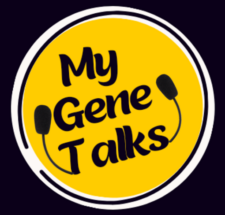Cancer
can be simply defined as the cells in body start to divide uncontrollably. This
phenomenon is linked to our genes. Genes in our body functions like control
centre with prewritten instructions that tells our cells how to divide and
function. When these instructions go wrong leads to cancer.
Cancer genetics is the study of how these genetic mutations or changes leads to cancer. Our body has mechanisms that can control cell division, and several types of genes are responsible for keeping things in check. When these mechanisms get interrupted leads to cancer. Here is how these mechanisms work.
Oncogenes: the accelerators or the ‘The Gas Pedal’: These gens promote cell division and growth. Normally these genes are under strict control, but when mutations occur, the genes become overactive, making the cells growing faster- just like the accelerator in cars.
Tumour suppressor genes – ‘The breaks’: These gens work in opposite to oncogenes, which slow down the cell division and repair DNA mistakes. If they become mutated and stop working, the cells divide unchecked- just like a faulty brake in a car.
DNA repair genes- ‘The mechanics’: These genes help to fix the errors in DNA. When they fails to work, mutations build up or accumulated over time and increasing the risk of cancer.
Are the mutations are Inherited?
Not all genetic mutations are inherited. Some can happen throughout our lifetime due to exposure to harmful substances or carcinogens. Mutations are of two types; inherited and acquired mutations.
Inherited mutations: these are passed from parents to their children and are present in every cell from birth. It contributes about 5-10% of all cancers. If cancer runs in your family. Genetic test can help identify your risk.
Acquired mutations: develop over time due to environmental factors like UV radiations, pollution or may be due to smoking or diet.
Genetic Counseling: A Guide to Understanding Your Cancer Risk
When we think about cancer, lifestyle choices or environmental exposures usually come to mind. However, for some people, cancer risk runs in the family due to changes in their DNA. This is where genetic counseling becomes a key tool. It helps individuals and families to understand whether inherited genetic mutations might increase their chances of developing certain types of cancer.
Genetic counseling is a specialized service provided by trained healthcare professionals known as genetic counselors. These experts review your personal and family history of cancer, assess your genetic risk, and help to determine whether genetic testing could provide helpful insights.
Not everyone needs genetic counseling, but it’s highly recommended if you have certain risk factors associated with your genome . For example, if you have multiple close relatives with the same type of cancer or if someone in your family was diagnosed at a young age, this might point to an inherited cancer trait. Other red flags include rare cancers like ovarian or pancreatic cancer in the family,
known mutations like BRCA1 or BRCA2, or a personal background that includesgroups at higher risk such as people of Ashkenazi Jewish descent.
So, what happens during a genetic counseling session? It’s more of a conversation than a medical exam. They may draw a family tree (or pedigree) to visualize this. Then, they’ll talk to you about whether genetic testing is a good option. If so, they’ll explain how the test works usually using a blood or saliva sample and what different results might mean.





The nuance they bring to the discussion, acknowledging that not every genetic mutation leads to cancer and that many cancers aren’t primarily hereditary, is crucial. It avoids the kind of oversimplified or fear-mongering narratives you sometimes see.